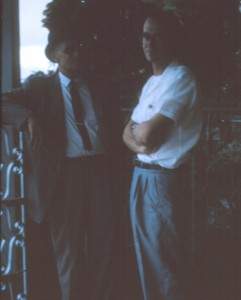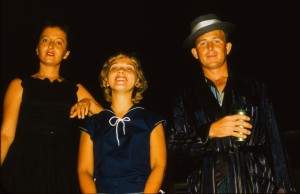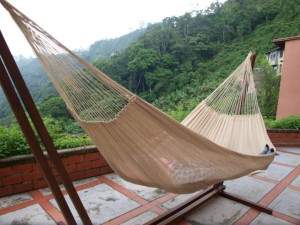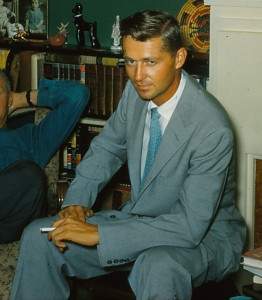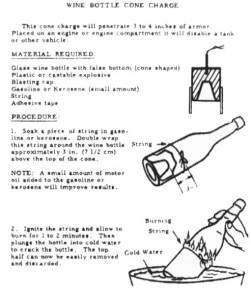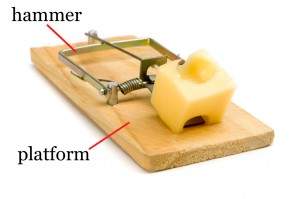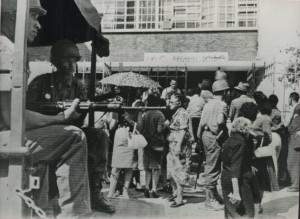Some perspective from a Third Worlder
December 5, 2023 by Thomas Wictor
I like living in the United States. It’s a great privilege. However, too many of my fellow Americans are idiots. The current fad is to march and protest because police kill black men. No other people count, which proves that the marchers and protestors are acting in bad faith. They don’t actually care about police abuse. On the political left, this is just a trendy cause. It gives people with empty lives a momentary sense of purpose. On the political right, this is a way to make inroads into the monolithic black voting block. Well, I was born in Venezuela. Let a Third Worlder tell you what real police abuse is.
First, here in this nation of 316 million—with over 885,000 federal, state, and local law-enforcement officers—the cops kill an average of ninety four black people per year. Compare that to the 14,827 murders committed in the US in 2012. That’s some First World perspective for you.
Now the Third World perspective.
My father Edward Wictor went to Venezuela in 1955 as a geologist for Creole Petroleum Corporation. Here he is with his father, Frank Wictor.
That photo was taken in Venezuela at Maturín Airport, sometime in 1955, before my father and grandfather embarked on a tour of virtually every country in South and Central America. They ended up in Mexico.
My mother moved to Venezuela in 1957.
That’s her on the left. She was a teacher hired by Creole to educate the children of its employees.
My parents married on May 30, 1959. Five kids later, we moved to Tyler, Texas, in the summer of 1972. From 1955 to the day we left Venezuela, my father, then my mother, then the rest of us were at the mercy of the Venezuelan police.
When my parents arrived, Venezuela was ruled by the dictator Marcos Pérez Jimenez.
The Venezuelan National Guard—a paramilitary force that was part of the Ministry of Defense—served as the national police. Each state had its own police force, as did each municipality. All operated independently. Arrest was arbitrary, and the defendant was considered guilty until he proved himself innocent.
All adult male expatriates in Venezuela carried an emergency kit in the trunk of his car. It consisted of clean clothes, money, and a chinchorro (hammock).
Venezuelan cops would arrest expatriates—especially Americans—and put them in indefinite detention. No charges were filed, and the arrested had no access to the legal system. The chinchorro was for the communal cells, which had no beds. An American would remain in custody until a bribe was paid to the cops, and then he’d be released.
Americans were lucky in that they were never tortured. Everyone else was. The jails were also slaughterhouses in which criminals butchered each other.
Roadblocks—alcabalas—were an everyday fact of life. You showed your identification several times a day, and you could bribe the cops to keep them from stealing whatever they wanted from your car. Smuggling from the Netherlands Antilles, Aruba, and Curacao was a huge part of the Venezuelan economy. Liquor, cigarettes, clothing, and food items such as cheese were brought in by speedboat and sold door to door. Smugglers were never caught, but their goods were often impounded and sold in the National Guard commissaries. Foreign nationals who had contacts in the Guard could walk away with whatever they wanted, dirt cheap.
The dictator Pérez Jimenez was overthrown in a coup on January 23, 1958. Venezuela then became even more lawless.
My father wrote three unpublished memoirs full of astonishing stories. He said that in 1958 everybody went around armed, due to the complete breakdown of social order. Every dispute was settled with a gun. One of my father’s colleagues was murdered in his office by a Venezuelan oil-field supervisor who didn’t like his evaluation. My father’s office was next door; though he never mentioned what happened next, there’s no doubt how the episode ended. My father was astonishingly skilled with handguns.
In 1958 the Venezuelan government formed the Dirección General de Policía (DIGEPOL), the secret police. After my father died, I found a notebook that listed his contact in DIGEPOL, a colonel. The agency was disbanded in 1969 for carrying out extrajudicial killings.
When Venezuelan police conducted investigations, they immediately arrested all involved and held them without charge. During the construction of an oil-tanker loading terminal at La Salina, human bone fragments were found in the soil samples. The police shut down the project and announced that all the oil-company employees would be jailed until pathologists could figure out who’d died. Money changed hands, and nobody was taken into custody. The bone fragments turned to be from an Indian who lived on the lake shore centuries ago.
Before he was married, my father lived in the bachelors’ barracks at Lagunillas. The barracks had a huge swimming pool, a rarity in Venezuela. One early Sunday morning, my father was awakened by heavy pounding on his door. It was a local DIGEPOL officer. He’d gotten drunk and fallen in the pool, and he needed a towel to dry off his pistol before it rusted. So my father let him in, and the man made himself at home, drying off his gun as he sat on the bed. There were no rules restricting how police behaved.
A passage from one of my father’s memoirs.
There were some pipeline incidents when we lived in eastern Venezuela in the early sixties. One pipeline about 120 km long lay on sleepers alongside a main road. It wasn’t buried in the ground. At that time Fidel Castro was landing men, weapons, and explosives in support of attempts to overthrow the government. Our pipeline was a frequent target. The saboteurs had a very effective method: They filled the bottom of a wine bottle with plastic explosive. Since the cavity formed a cone, the explosive functioned as a shaped charge.
A mousetrap, a couple of batteries, a detonator, and an ice cube completed the list of necessary materials. The detonator was placed in the plastic explosive and wired to the two batteries. The wires were then hooked to the mousetrap, one on the platform and one on the hammer.
An ice cube was put between the platform and hammer, which allowed the saboteur time to get away. When the ice cube melted, the two wires came together and completed the circuit, detonating the explosive.
We discovered how the system worked when one blew up prematurely, killing the saboteur. DIGEPOL drove up, spraying the countryside with machine-gun fire. They took possession of the late saboteur and his paraphernalia and departed.
Actually that’s not what happened. I have it on good authority that an oil-company employee ambushed the saboteur and shot him to death. If you think about it, a prematurely exploding bomb wouldn’t leave much of the device or the saboteur. I can’t imagine DIGEPOL being anxious to put a blown-apart corpse in their luxury car.
We left Venezuela in the summer of 1972, when it became clear that the government was going to nationalize the oil industry. The fear was that foreign oil executives would be kidnapped at the airport, so my mother told us that if any Venezuelan man tried to talk to our father, we were to run over and make a big commotion.
I didn’t relax until the wheels of the jet airliner left the runway. We’d spent our entire childhoods up to that point in the presence of armed men who had no scruples. The National Guard patrolled our oil camp in Tia Juana and sometimes parked at the gates of our school, allegedly due to terrorist threats.
They just wanted money. It was a not-so-subtle threat of what they could do whenever they wanted.
Those of you out marching and protesting American “police brutality” have no appreciation of how lucky we are.
This article viewed 1083 times.

